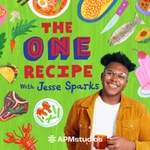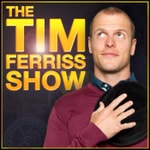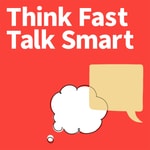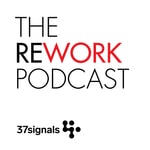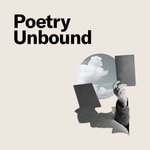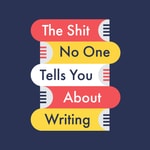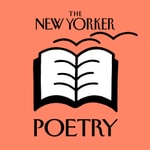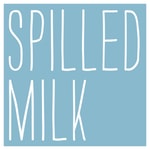Emerging Form – Details, episodes & analysis
Podcast details
Technical and general information from the podcast's RSS feed.
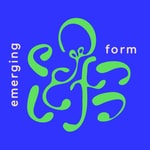
Emerging Form
Christie Aschwanden
Frequency: 1 episode/13d. Total Eps: 174

emergingform.substack.com
Recent rankings
Latest chart positions across Apple Podcasts and Spotify rankings.
Apple Podcasts
🇨🇦 Canada - books
08/07/2025#91🇨🇦 Canada - books
22/02/2025#75🇺🇸 USA - books
25/01/2025#94🇨🇦 Canada - books
15/01/2025#73🇨🇦 Canada - books
12/12/2024#73🇨🇦 Canada - books
21/11/2024#82🇨🇦 Canada - books
20/11/2024#41🇺🇸 USA - books
17/11/2024#95🇺🇸 USA - books
16/11/2024#75🇫🇷 France - books
13/11/2024#96
Spotify
No recent rankings available
Shared links between episodes and podcasts
Links found in episode descriptions and other podcasts that share them.
See all- https://twitter.com/stevemagness
189 shares
- https://twitter.com/katefagan3
8 shares
RSS feed quality and score
Technical evaluation of the podcast's RSS feed quality and structure.
See allScore global : 59%
Publication history
Monthly episode publishing history over the past years.
Episode 122: Mark S. Burrows on the Art of Translation
jeudi 3 octobre 2024 • Duration 36:09
One of the most thrilling stories of creative inspiration is that of Rainer Maria Rilke writing Sonnets to Orpheus and the Duino Elegies following a time of great international and personal upheaval. Translator and poet Mark S. Burrows shares Rilke’s story with us and talks with us about the art of translation–full of creative conundrums and choices and impossible invitations. It’s a heart-opening, deeply compelling episode about how we are all translators, “listening to the deepest voice” and how life itself is our greatest creative act.
Mark S. Burrows is an award-winning poet, translator, and scholar. An historian of medieval Christianity, he is a much sought-after speaker and retreat leader in the US and Europe. He is a past president of the Society for the Study of Christian Spirituality and currently edits poetry for the society’s journal Spiritus. His most recent translation is Rilke’s Sonnets to Orpheus (2024). He recently published You Are the Future: Living the Questions with Rainer Maria Rilke (2024), cowritten with Stephanie Dowrick. He lives and writes in Camden, ME.
This is a public episode. If you'd like to discuss this with other subscribers or get access to bonus episodes, visit emergingform.substack.com/subscribe
Episode 121: Rosemerry's New Poetry Collection
jeudi 19 septembre 2024 • Duration 31:24
This week, Christie interviews Rosemerry about her new book, The Unfolding, out on October 1st. Do her a big favor and pre-order it now at this link. Rosemerry explains how the poems came together, how she structured the book and why the cover is pink. It’s a wonderful conversation we know you’ll love.
Rosemerry Wahtola Trommer is a poet, teacher, speaker and writing facilitator. Her daily audio series, The Poetic Path, is on the Ritual app. Her poems have appeared on A Prairie Home Companion, PBS News Hour, O Magazine, American Life in Poetry, and Carnegie Hall stage. Her most recent poetry collections are All the Honey (Samara Press, 2023) and The Unfolding (Wildhouse Publishing, October 2024). In January, 2024, she became the first poet laureate for Evermore, helping others explore grief, bereavement, wonder and love through poetry. One-word mantra: Adjust.
This is a public episode. If you'd like to discuss this with other subscribers or get access to bonus episodes, visit emergingform.substack.com/subscribe
Episode 112: Courtney E. Martin on the Tragic Gap
jeudi 16 mai 2024 • Duration 33:08
“Invest always in relationships before you need them, be vulnerable with them,” says Courtney E. Martin, journalist, author, podcaster and speaker. In this episode, she shares with us an essential question for all journalists and creatives and discusses how it shaped a specific project, plus she offers advice for living a creative life based on Parker Palmer’s thoughts on “the tragic gap.” This is an episode focused on transparency, vulnerability, community and humility.
Courtney E. Martin is the author of four books, most recently, Learning in Public, a popular newsletter, called Examined Family, host of “The Wise Unknown” podcast from PRX, and co-host of the Slate “How To!” podcast. She’s also a co-founder of the Solutions Journalism Network and FRESH Speakers, and the Storyteller-in-Residence at The Holding Co. Her literal happy place is her co-housing community in Oakland, Calif. Her metaphorical happy place is asking people questions.
This is a public episode. If you'd like to discuss this with other subscribers or get access to bonus episodes, visit emergingform.substack.com/subscribe
Episode 32 Bonus: Sarah Gilman on Self-Worth/Creative Work
jeudi 4 février 2021 • Duration 12:25
How do we abstract our sense of self-worth from our creative work? That’s one of the themes in this bonus episode in which we converse with writer/artist/poet/editor Sarah Gilman. We learn about her reliance on small blank notebooks, the efficient layout of her office and the importance of having books around.
Sarah Gilman is a Washington state-based freelance writer, illustrator and editor who covers the environment, natural history, science, and place. In her writing, she seeks to illuminate the complicated ways people relate to landscapes and other species. In her visual art, she’s most interested in the cultivation of wonder, and the ways it might help more of us come to value and make space for wildness and each other. Her current work is at the nexus of the two fields. Her writing and reporting have appeared in The Atlantic, Audubon Magazine, Hakai Magazine, The Washington Post, High Country News, BioGraphic, National Geographic News, Smithsonian.com, The Guardian, Patagonia’s The Cleanest Line, and The Last Word on Nothing. Her work has been anthologized in The Best Women’s Travel Writing, Volume 11. In 2021, she will be a Knight Science Journalism fellow. She’s also a contributing editor at Hakai Magazine.
https://www.etsy.com/shop/HiddenDrawerDesigns
https://sarahmgilman.com/
This is a public episode. If you'd like to discuss this with other subscribers or get access to bonus episodes, visit emergingform.substack.com/subscribe
Episode 32: Cross Your Art with Sarah Gilman
jeudi 28 janvier 2021 • Duration 28:21
How can working in one art form strengthen our practice in another? Our guest Sarah Gilman describes herself as a “creative smush,” and in this episode, the artist/writer/editor talks about how all these art forms inform each other--how all of them allow her to “think in terms of metaphors.” As she says, by working in multiple fields at once, she can enter into a place where “themes can combine in immersive ways that foster empathy, respect for nuance over polarization, and a sense of awe for and accountability towards the world as it is—still huge and full of mystery and beauty, however threatened or diminished.” We also talk about how to get out of our own way, the importance of going outside, and how community and connections can fuel our work.
Sarah Gilman is a Washington state-based freelance writer, illustrator and editor who covers the environment, natural history, science, and place. In her writing, she seeks to illuminate the complicated ways people relate to landscapes and other species. In her visual art, she’s most interested in the cultivation of wonder, and the ways it might help more of us come to value and make space for wildness and each other. Her current work is at the nexus of the two fields. Her writing and reporting have appeared in The Atlantic, Audubon Magazine, The Washington Post, High Country News, BioGraphic, National Geographic News, Smithsonian.com, The Guardian, Patagonia’s The Cleanest Line, and The Last Word on Nothing. Her work has been anthologized in The Best Women’s Travel Writing, Volume 11. In 2021, she will be a Knight Science Journalism fellow. She’s also a contributing editor at Hakai Magazine.
https://www.etsy.com/shop/HiddenDrawerDesigns
South America's Otherworldly Seabird, Sarahs’ narrative and illustrations of how scientists are working to save a tiny seabird in the Atacama Desert.
This is a public episode. If you'd like to discuss this with other subscribers or get access to bonus episodes, visit emergingform.substack.com/subscribe
Episode 31 Bonus: Three poems from Rosemerry about moving into the new year
jeudi 21 janvier 2021 • Duration 06:47
For Auld Lang Syne
—Rosemerry Wahtola Trommer
We’ll drink a cup of kindness yet,
says the song, and I would give you
the cup, friend, would fill it
with whiskey or water or whatever
would best meet your thirst.
I fill it with the terrifying beauty
of tonight’s bonfire—giant licks
of red and swirls of blue that consume
what is dead and melt the ice
and give warmth to what is here.
I fill it with moonrise and snow crystal
and the silver river song beneath the ice.
With the boom of fireworks and with laughter
that persists through tears. With
Lilac Wine and Over the Rainbow and Fever.
I toast you with all the poems we’ve yet to write
and all the tears we’ve yet to weep,
I hold the cup to your lips,
this chalice of kindness, we’ll drink it yet,
though the days are cold, the nights so long.
—Rosemerry Wahtola Trommer
____
The Next Storm Comes
And suddenly you know: It’s time to start something new and trust the magic of beginnings.
—Meister Eckhart
And suddenly you know it’s time
to shovel the drive. For though snow
still falls, at this moment it’s only
three inches deep and you can still push it easily
with your two wide yellow shovels.
Yes, it’s time to start something new—
though it doesn’t feel new, this
shoving snow from one place to another.
In fact, your shoulders still feel
the efforts of yesterday.
But with each push of the shovels,
the path on the drive is new again. At least
it’s new for a moment, new until snow
fills it in. Then it’s a different kind of new.
How many beginnings are like this?
They don’t feel like beginnings at all?
Or we miss their newness?
Or they feel new only for a moment
before they’ve lost their freshness?
There is magic in beginnings, says Meister Eckhart,
and sometimes we see beginnings all around us,
a new path, a new promise, a new meal.
A new prayer. New snow fall. A new song.
Is it too grand to call it magic, this new calendar year?
Too grand to call it magic, this momentary
clearing on the drive? Too grand to be magic,
this momentary clearing in my thoughts?
Or is it exactly, perhaps, what magic is—
something we allow ourselves to believe,
despite logic, despite reason, something that brings
us great pleasure, makes us question
what we thought we knew, our sense
of what is possible changed.
—Rosemerry Wahtola Trommer
_____
Watching The Wizard of Oz on New Year’s Eve, I Think of a Resolution toward Peace
As for you, my galvanized friend, you want a heart. You don’t know how lucky you are not to have one. Hearts will never be practical until they can be made unbreakable.
—The Wizard to the Tin Man, The Wizard of Oz, Frank L. Baum
Give us hearts that break
when we see how cruel the world can be
and hands that extend toward others.
Give us eyes that weep when we feel
the beauty of home, and
lips to speak love, to apologize.
Give us courage to say what must be said
and ears to hear what we’d rather not hear
and eyes that will not turn the other way
from anyone in need.
Give us brains that are wired
for helpfulness, compassion
and curiosity. Yes, let us ask for hearts
that break and break and grow
bigger in the breaking. Let us
love more than we think we can love.
And the cup of kindness, may we
ever remember to drink of it,
let us share it with each other.
—Rosemerry Wahtola Trommer
This is a public episode. If you'd like to discuss this with other subscribers or get access to bonus episodes, visit emergingform.substack.com/subscribe
Episode 31: New Year 2021!
jeudi 14 janvier 2021 • Duration 34:44
Photo: Christie & Rosemerry shortly before the pandemic began. (Yes, that is one of Rosemerry’s poems on Christie’s tights.)
For creatives, the new year is a chance to look back on what we’ve accomplished and how we’ve grown in the past year, and also a chance to dream about our creative endeavors in the future. In this episode, Christie and Rosemerry have a conversation about how to do your own “year end report,” how a magic wand might help you identify your goals, and how two questions from Motivational Interviewing can help you verbalize why your goals are important to you. We talk about bonfires--both literal and metaphorical, a few of our own goals, some of our skepticism around goals, and our mottos and themes for moving forward.
A story Christie wrote about how to make New Year’s resolutions
Christie’s 2021 New Year’s resolution
Christie’s Instagram and Rosemerry’s
A little new years goal advice from our episode 28 guest, Holiday Mathis. “Do not set targets for results that are beyond your control. Keep asking yourself what can be done to help this along. Set targets for what you can produce, actions you can take, miles you can move.”
_____
Bonfire in the Heart
by Rosemerry Wahtola Trommer
I throw in any tallies
I’ve been keeping,
the ones that record
who did what and when.
I throw in all the letters
I wrote in my head but didn’t send.
I throw in tickets I didn’t buy
to places I didn’t visit.
I throw in all those expectations
I had for myself and the world last year
and countless lists of things I thought I should do.
I love watching them ignite,
turn into embers, to ash.
I love the space they leave behind
where anything can happen.
This is a public episode. If you'd like to discuss this with other subscribers or get access to bonus episodes, visit emergingform.substack.com/subscribe
Episode 30: Mentorship and creativity with Art Goodtimes
jeudi 17 décembre 2020 • Duration 27:07
If you are lucky, as an artist, you have a mentor--someone who recognizes your potential, who offers feedback, who pushes you and helps you grow. In this episode we talk with one of Rosemerry’s mentors, the phenomenal Art Goodtimes, about his relationship with his mentor, Dolores LaChapelle. We cover everything from The problem with the greek alphabet to the mushroom parade down the streets of Telluride and how ritual takes us out of our minds and into our bodies, making us “more than what we are.”
Poet, basket weaver and former regional editor/columnist, Art Goodtimes served as San Miguel County Commissioner (Green Party, 1996-2016) and Western Slope Poet Laureate (2011-13). Former poetry editor for Earth First! Journal, Wild Earth and the Mountain Gazette, currently he’s poetry editor for Fungi magazine and co-editor with Lito Tejada-Flores at the on-line poetry anthology SageGreenJournal.org. His latest book out from Lithic Press is Dancing on Edge: The McRedeye Poems(Lithic, 2019). Since 1981 “Shroompa” has been poet-in-residence at the annual Telluride Mushroom Festival in August. A recent cancer survivor, Art serves as program co-director for the Telluride Institute’s Talking Gourds poetry program, including the national Fischer Prize and Colorado Cantor Prize contests.
Dancing on Edge: The McRedeye Poems
www.facebook.com/art.goodtimes
Art Goodtimes (right) with Emerging Form patron saint, Jack Mueller. (photo credit: Jimi Bernath)
This is a public episode. If you'd like to discuss this with other subscribers or get access to bonus episodes, visit emergingform.substack.com/subscribe
Episode 29 bonus: The creative life of Danusha Laméris
jeudi 10 décembre 2020 • Duration 15:04
In this bonus conversation with acclaimed poet Danusha Laméris, we learn about her nocturnal writing habits, her leap from painting to poetry (and the advice that came with her), and the importance of “belonging” and “the tribe.”
Danusha Laméris’ first book,The Moons of August (Autumn House, 2014), was chosen by Naomi Shihab Nye as the winner of the Autumn House Press poetry prize. Some of her poems have been published in The Best American Poetry,The New York Times,TheAmerican Poetry Review,The GettysburgReview, Ploughshares, and Tin House. She’s the author ofBonfire Opera, (University of Pittsburgh Press, Pitt Poetry Series, 2020), and the recipient of the 2020 Lucille Clifton Legacy Award. Danusha teaches poetry independently, and was the 2018-2020 Poet Laureate of Santa Cruz County, California.
The Hive Poetry Collective Podcast
This is a public episode. If you'd like to discuss this with other subscribers or get access to bonus episodes, visit emergingform.substack.com/subscribe
Episode 29: Danusha Laméris
jeudi 3 décembre 2020 • Duration 29:10
“You remind me of my humanness by talking about yours,” says this week’s Emerging Form guest Danusha Laméris. We speak with the award-winning poet about how the small stories--what she calls “the understory”--mean as much, perhaps more, as the big headlines, and the creative process around finding and sharing these stories. We talk about the importance of leaning into the complexity and not needing “to be a motivational speaker.”
Danusha Laméris’ first book, The Moons of August (Autumn House, 2014), was chosen by Naomi Shihab Nye as the winner of the Autumn House Press poetry prize. Some of her poems have been published in The Best American Poetry, The New York Times, TheAmerican Poetry Review, The GettysburgReview, Ploughshares, and Tin House. She’s the author of Bonfire Opera, (University of Pittsburgh Press, Pitt Poetry Series, 2020), and the recipient of the 2020 Lucille Clifton Legacy Award. Danusha teaches poetry independently, and was the 2018-2020 Poet Laureate of Santa Cruz County, California.
The Hive Poetry Collective Podcast
“Small Kindnesses” by Danusha Laméris
“June 20th” by Lucille Clifton
“Bonfire Opera” by Danusha Laméris
_____________________________
Writing Haikus for Rosemerry
—Christie Aschwanden
My dear poet friend
Does not recognize that I
Wrote her a haiku
This is a public episode. If you'd like to discuss this with other subscribers or get access to bonus episodes, visit emergingform.substack.com/subscribe
